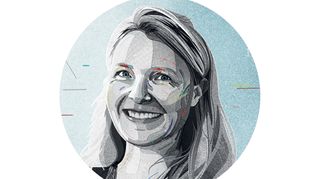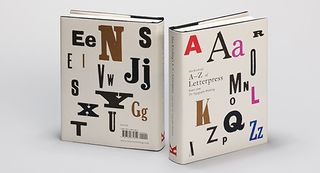Why Britain is in danger of losing its design superpower status
The RSA's Sevra Davis is worried. She offers three ways for the UK to retain its global design edge.

Sevra Davis is the manager of the RSA Student Design Awards. She's consulted on design education and social innovation for a variety of international government clients. She explains why the UK could be losing its design edge...
Britain is excellent at design. From the Clifton Suspension Bridge to the internet, we're exceptionally adept at creating new, top-end, creative stuff.
The value of British design endures abroad too. Last year, the University of the Arts London attracted 7,700 international students. Celebrated British designers (such as Sir Jonathan Ive, Thomas Heatherwick and many more) and design agencies (including Pentagram, Wolff Olins and The Partners) shine bright on the world stage.
Computer Arts' list of the top 50 UK design agencies last year highlighted that 25 per cent of them have international offices.

And yet I fear that, unless the industry starts to make some changes, we'll fall behind. From the RSA's perspective, that would be a tragedy, both culturally and economically.
Part of the answer must lie in a better understanding of markets abroad. How should products and services be adapted internationally? How can we use this knowledge to get the edge on our competitors? For me though, before we look out, we need to look in.
01. Upskilling is key
First, industry needs have changed: businesses want creative polymaths as well as people with specific technical skills. We still hear lots about T-shaped designers and for good reason – we need people with deep expertise in a particular discipline, alongside experience working in multiple contexts.
02. Better design education
Second, British design education needs dramatic improvement. A recent Warwick Commission report highlighted that in secondary schools, design and technology has 11 per cent fewer teachers and hours of teaching than in 2010, while the number of art teachers has dropped by 11 per cent too.
And creative courses at universities need help securing the best students. Higher tuition fees mean parents and undergraduates are choosing 'safer' subjects, like business or law – when the reality is that the creative economy is the fastest-growing and can be just as personally lucrative.
03. Drop the modesty
Finally, designers need to be more assertive about promoting our skills in top-level global commercial and policy debates. The potential for problem-solving global issues through design are numerous, from developing smarter cities to tackling climate change.
A serious, committed, intelligent designer or design studio must be at the table in the planning stage of major projects. British design can be big and bold or subtle and clever – our range makes us special.

Design quality has been an important element in the construction of our national identity and our international competitiveness since the World's Fair. British design has a canny ability to look forward, to see what's coming next. This is nothing to be modest about.
And in a globalised world, where everyone is vying for attention, we can't afford to be modest. We must celebrate our talents, or risk falling behind.
Words: Sevra Davis
Illustration: Żaneta Antosik
The full version of this article first appeared inside issue 241 – a character design special – of Computer Arts. Get up to 55 per cent off a subscription to CA here.
Liked this? Try these...
- The ultimate guide to logo design
- 7 steps for illustrating luxury print collateral
- 8 tips to turbocharge your creative career

Thank you for reading 5 articles this month* Join now for unlimited access
Enjoy your first month for just £1 / $1 / €1
*Read 5 free articles per month without a subscription

Join now for unlimited access
Try first month for just £1 / $1 / €1
Get the Creative Bloq Newsletter
Daily design news, reviews, how-tos and more, as picked by the editors.
The Creative Bloq team is made up of a group of design fans, and has changed and evolved since Creative Bloq began back in 2012. The current website team consists of eight full-time members of staff: Editor Georgia Coggan, Deputy Editor Rosie Hilder, Ecommerce Editor Beren Neale, Senior News Editor Daniel Piper, Editor, Digital Art and 3D Ian Dean, Tech Reviews Editor Erlingur Einarsson, Ecommerce Writer Beth Nicholls and Staff Writer Natalie Fear, as well as a roster of freelancers from around the world. The ImagineFX magazine team also pitch in, ensuring that content from leading digital art publication ImagineFX is represented on Creative Bloq.
